Early Retirement Isn’t All Bliss: 15 Reasons Travel Still Feels Like Work

Quitting your job to travel the world sounds like the ultimate dream. Many early retirees picture endless beaches, worry-free adventures, and total freedom.
But here’s the truth — travel can sometimes feel just as demanding as the career you left behind, bringing a new set of challenges you didn’t see coming. From budgeting on the go to navigating unfamiliar places daily, the lifestyle isn’t always as carefree as Instagram suggests.
That said, if you know what to expect, you can still chase that dream — just with both eyes open.
1. Planning Every Detail

Travel freedom quickly morphs into spreadsheet hell. I spend hours researching destinations, comparing flight prices, and mapping out daily activities – just like project planning at my old job.
Spontaneity sounds great until you realize good accommodations book up months in advance. Finding the sweet spot between over-planning and under-planning becomes its own mental burden.
Did you know most retired travelers report spending 15-20 hours planning each week of travel? That’s a part-time job right there!
2. Booking Fatigue Sets In

Clicking through endless booking sites becomes mind-numbing after retirement. What starts as exciting research turns into tedious comparison shopping across dozens of platforms, each with different cancellation policies and hidden fees.
My inbox overflows with confirmation emails, reminder notifications, and update alerts. Managing all these reservations requires its own organizational system.
Sometimes I miss having a company travel department handle these details. The freedom to choose comes with the responsibility to manage every single booking myself.
3. Airport Stress Never Ends
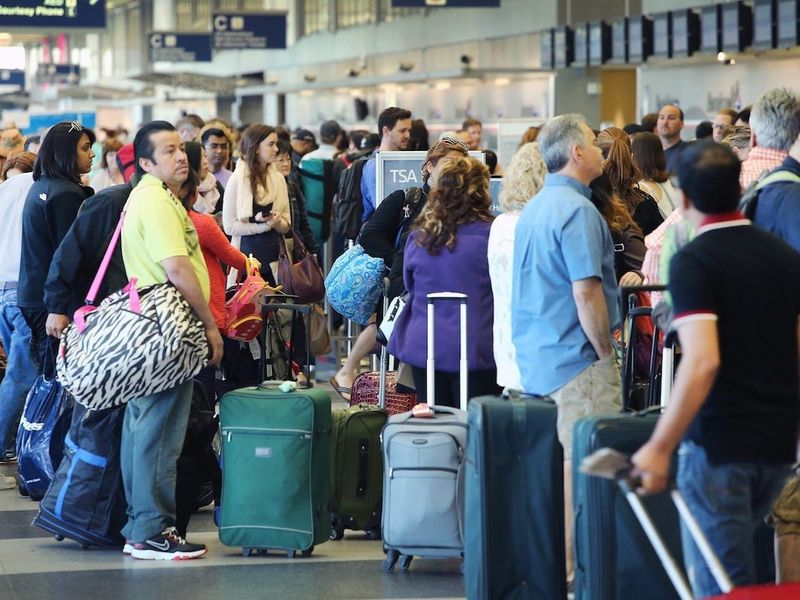
Rushing through security lines with my shoes in one hand and laptop in another never gets easier. Early retirement means more flights, not fewer, and each one brings the same old stresses – delayed connections, gate changes, and crowded terminals.
If anything, airports feel worse now. With more time to travel, I’m hitting major hubs during peak seasons when everyone else is vacationing too.
The glamour wears off quickly when you’re standing in your socks at 5 AM, waiting for your carry-on to clear the scanner for the third time this month.
4. Packing Still Annoying
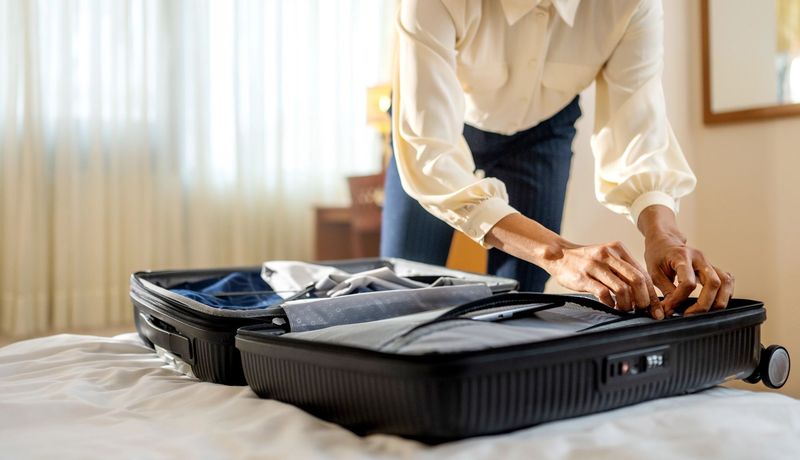
Folding clothes and weighing luggage becomes a recurring nightmare. After dozens of trips, I still struggle with the perfect packing strategy – too many clothes for some climates, not enough for others.
Laundry becomes a constant challenge on the road. Finding washers, hanging clothes in hotel bathrooms, and paying premium prices for simple cleaning adds unexpected stress.
Though I’ve been traveling for years now, I still occasionally forget essentials. Nothing feels more frustrating than hunting for specific medications or toiletries in unfamiliar stores where you can’t read the labels.
5. Budgeting Feels Constant

Money worries follow you everywhere in retirement travel. I track every expense in a dedicated app, constantly converting currencies and wondering if I’m spending too much too fast.
Unexpected costs pop up regularly – that perfect beach town suddenly implements a new tourist tax, or the restaurant charges triple what locals pay. Living on a fixed income means these surprises sting more than they used to.
Where once I could splurge knowing another paycheck was coming, now each decision weighs against my finite retirement savings. The mental math never stops, even during moments that should feel carefree.
6. Visa Rules Headache
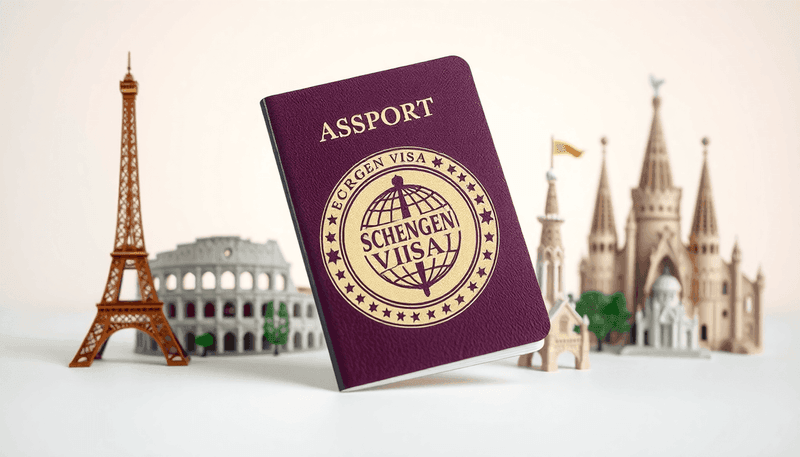
Immigration paperwork haunts my travel dreams. Each country has unique requirements – some need proof of onward travel, others want financial statements, and many limit how long you can stay.
Schengen rules in Europe mean carefully counting days across multiple countries. I’ve created complex spreadsheets just to track my allowed time in different regions, feeling like I’m managing a compliance department.
Making mistakes carries serious consequences. One wrong date or missing document can mean denied entry or, worse, being flagged in immigration systems for future trips. The stress feels remarkably similar to work deadlines.
7. Too Many Logistics
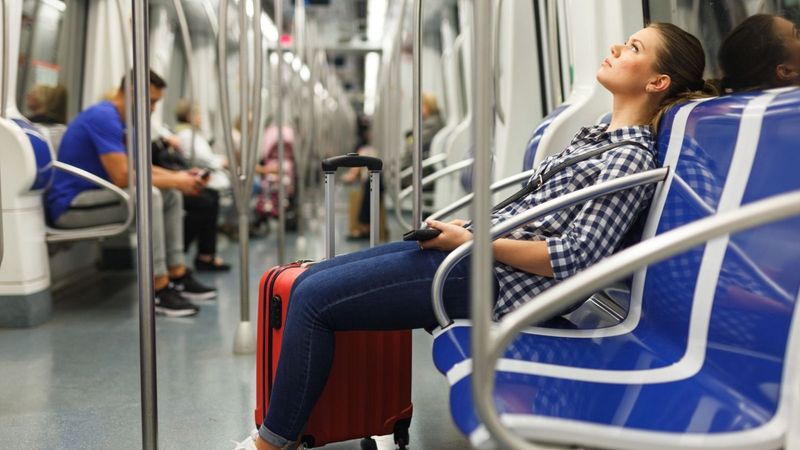
Managing transportation between destinations creates unexpected stress. I find myself coordinating complicated train connections, ferry schedules, and local bus systems – often in languages I barely understand.
Accommodation logistics pile up quickly. Arranging key pickups, check-in times, and special requests at each new place becomes its own part-time job.
When things go wrong, the burden falls entirely on me. That missed connection or canceled tour needs immediate solving without a helpful colleague or assistant to share the load. Sometimes I laugh realizing I’ve essentially become my own unpaid travel agent.
8. Health Insurance Gaps

Medical coverage becomes a constant worry when traveling in retirement. I research insurance policies for each trip, comparing complex coverage limits and reading the fine print about pre-existing conditions.
Finding doctors who speak English in foreign countries adds another layer of stress. I keep a folder of medical phrases translated into multiple languages just in case.
The cost skyrockets as I age. What was affordable travel insurance at 55 becomes significantly more expensive at 65, eating into my carefully planned budget. This financial pressure feels surprisingly similar to work-related health benefit decisions.
9. Language Barrier Struggles

Communication challenges drain my energy faster than I expected. Simple tasks like ordering food or asking directions become mini-adventures requiring patience and creativity.
Learning new phrases helps but never eliminates the problem. I’ve spent countless hours with language apps, only to freeze when a rapid response comes back in real life.
Medical situations bring the highest anxiety. Trying to explain symptoms or understand treatment options through translation apps feels frightening and isolating. These moments remind me that while travel is freeing, it also removes the comfort of easy communication I took for granted at home.
10. Tech Doesn’t Always Work
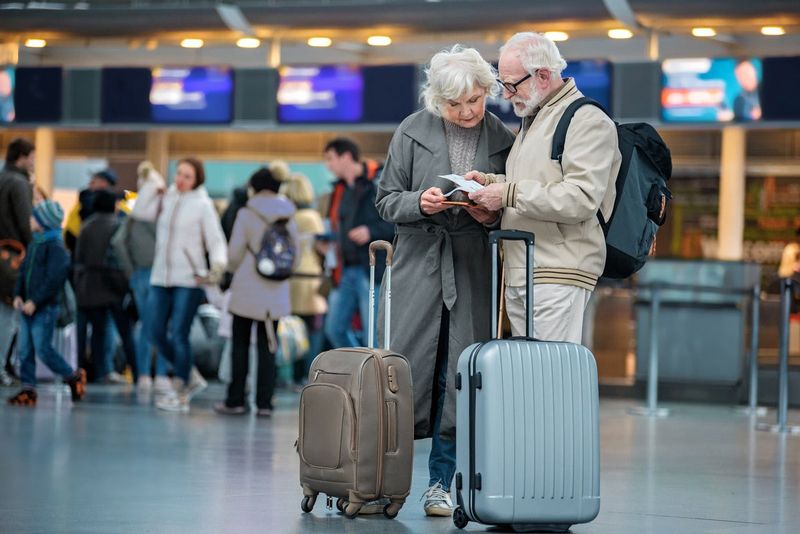
Wi-Fi frustrations follow me around the globe. I’ve become that person huddled near hotel lobbies seeking better signals or hunting for reliable cafés where I can update family or manage bookings.
Technical problems compound when traveling. My phone decided to stop working in Thailand, leading to a stressful day finding repair options without being able to use maps or translation apps.
Keeping devices charged becomes its own challenge. I carry a collection of adapters, power banks, and cords that rivals my former work laptop bag. The digital nomad lifestyle requires as much technical maintenance as my old office job.
11. Missed Flights Happen

Travel disruptions create the same stress as workplace emergencies. Last month, a canceled connection left me scrambling for alternatives in a foreign airport, calling hotels to extend stays and rearranging subsequent bookings.
The financial impact hits harder in retirement. That non-refundable tour or accommodation suddenly lost to flight problems comes from a fixed income with no overtime pay to make up the difference.
Recovery time feels different too. Where once I could shake off travel mishaps quickly, now they drain my energy for days. The constant problem-solving reminds me of handling workplace crises, except now I’m both the manager and employee.
12. Tourist Crowds Drain Energy

Fighting through packed attractions tests my patience regularly. After leaving workplace crowds behind, I find myself shoulder-to-shoulder with other tourists at popular sites, all trying to capture the perfect photo.
Timing becomes everything in travel planning. I research shoulder seasons and opening hours obsessively, trying to avoid the worst crowds – a strategy that feels remarkably like project scheduling.
The noise and constant movement exhaust me faster now. Where once I could power through crowded situations, I now need recovery days built into my itinerary. This careful energy management feels like work-life balance all over again.
13. Daily Itinerary Pressure

FOMO (fear of missing out) follows me around the world. Each destination comes with its “must-see” list, creating internal pressure to maximize every day – wake early, see everything, experience it all!
Rest becomes difficult to schedule. I feel guilty taking downtime when there’s so much to explore, leading to exhaustion cycles that mirror my former work burnout.
The self-imposed deadlines feel oddly familiar. “We only have three days in Prague” creates the same stress as “This project is due Friday.” Sometimes I laugh realizing I’ve replaced work deadlines with travel ones, complete with the same anxiety.
14. Hotel Reviews Mislead

Accommodation disappointments happen regularly despite careful research. That “charming boutique hotel” with glowing reviews turns out to have paper-thin walls and construction next door.
Hours spent reading reviews feels like wasted effort. I’ve developed a complex system for filtering feedback – ignoring one-star rants and five-star gushes while hunting for specific mentions of cleanliness and noise.
Moving accommodations mid-trip creates its own stress. When that perfect-looking rental doesn’t match expectations, I face the choice between enduring it or spending precious vacation time finding alternatives and repacking. This problem-solving feels remarkably like troubleshooting workplace issues.
15. Always Watching Expenses

Financial anxiety follows me across borders. I calculate the real cost of everything – is this museum worth €15? Should I take the cheaper bus or splurge on a taxi after a long day?
Exchange rates add another layer of math to every purchase. I’ve found myself standing in stores running calculations, wondering if I’m getting a good deal or being charged tourist prices.
The constant awareness of a finite retirement fund creates background stress. Without new income flowing in, each expenditure feels more significant. This money mindfulness transforms even simple pleasures into financial decisions, much like budgeting for business expenses in my working days.
